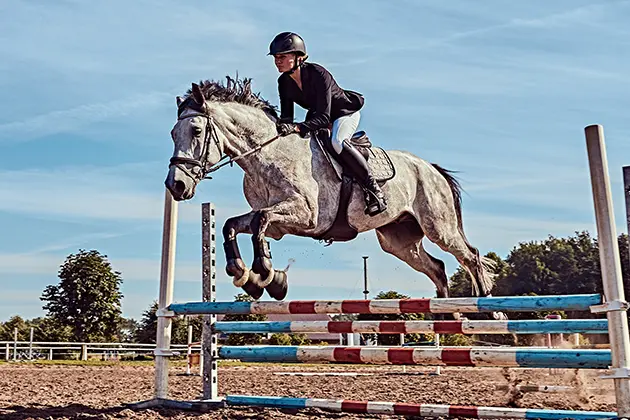Horse racing is one of the most globally popular sports for its unique atmosphere and ability to draw on the adrenaline thrill of a race to the finish. It also has many celebratory ladies’ days when the fairer sex can show their fashion and style to the world. However, it is also one of the few sports in the world that pit men directly against women in the same field. Times are changing too off the course in what was once a male-dominated endeavor.
In 2018, a study at the University of Liverpool, a city that knows all about one of the most famous races in the world, found that female jockeys were just as good as their male counterparts. Throughout the time frame of that study, 95 per cent of the available rides factored into the data were given to males who also dominated almost 90 per cent of professional jockey licenses.
There is an increasing body of evidence that women are as competent and competitive in the saddle or on the training ground. It’s just getting the opportunity that still holds them back. However, traditional interpretations of what’s needed in the saddle prevail. There is still the tired idea at play that females are not strong enough or capable enough to steer their mount to consistent finishes. It is still a chauvinistic sport in many ways as owners do not want to “risk” their success on a gender basis.
There are plenty of females who have bucked the trend and proved themselves at the business end to speed up progress. Back in 2015, Michelle Payne stormed to victory in the Melbourne Cup and said: “Everyone else can get stuffed because they think women aren’t strong enough, but we just beat the world.’ Similarly, Rachael Blackmore blazed a trail when she became the first woman to win the Grand National in 2021 and followed that up by becoming the first female to win the Cheltenham Gold Cup. She is considered to be one of the best jump jockeys of the last few years, even from the master himself, Sir Tony McCoy.
Blackmore’s immediate reaction after claiming the famous win at Aintree was telling. ““I don’t feel male, female or anything, I don’t feel human,” she exclaimed. She has changed the dial on how women are viewed in the industry. There has certainly been a significant rise in women riders inspired by the likes of Blackmore and Rosie Napravnik, a two-time winner of the Kentucky Oaks. By 2024, only six women have ridden in the Kentucky Derby. What price the Belmont Stakes odds that Jena Antonucci would win the last leg of that Triple Crown in 2023? Anything is possible.
The good news is that there is certainly an upsurge in women trainers. In most yards, women riders can outnumber men and one look at the premier female trainers certainly proves that the woman’s touch can be more effective. Linda Rice has been a respected and dominant figure for more than two decades with well over 2,000 career wins. Brittany Russell is another game-changer, becoming the first woman trainer to top Maryland’s charts in a calendar year. Her reaction echoed that of Blackmore: “We work beside men and women. We just get up and do our job and try and be the best.”
One major indicator of moving away from the machismo of the weighing room and engaging all stakeholders is appointing women in decision-making roles. Julie Harrington was appointed CEO of the British Horseracing Authority in 2021. The first female in charge of racing’s ruling authority, she has already spoken out about instances of workplace bullying and sexual misconduct which can still be prevalent when women work in places that are still male-dominated in terms of positions of power.
The bullying case of Bryony Frost, which she won against fellow rider Richard Dunne, undoubtedly affected the number of rides she received thereafter and she chose to move to France to get work. Frost was the first female to win a Grade 1 race at Cheltenham but her case showed how the weighing room culture must shift to fully accommodate all riders. The episode led to calls for change as many weighing rooms are still designed for men only and can be intimidating for young females making their way.
There is certainly a slow sea change in attitudes towards women in the horse racing industry as the empirical evidence of successes mount up in front of a global audience. “A woman never looks better than on horseback,” Jane Austen wrote in Sense and Sensibility. As the 21st century progresses, it will be interesting to see if this proves more than just a great quote from a famous novel.










